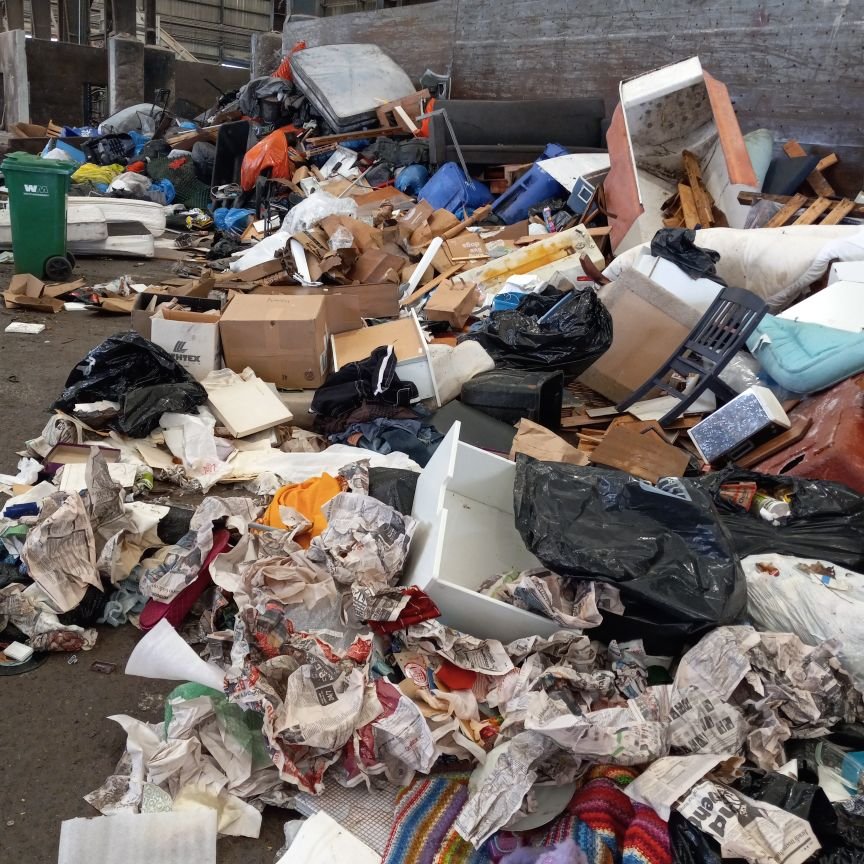Navigating Liquid Waste Challenges with Reclaim Waste Melbourne's Skills
Navigating Liquid Waste Challenges with Reclaim Waste Melbourne's Skills
Blog Article
Checking Out the Significance of Reclaim Waste in Sustainable Waste Administration Campaigns
In the realm of sustainable waste management, the concept of redeeming waste emerges as a vital component that demands focus and consideration. By analyzing the complex interaction in between waste improvement and lasting waste management efforts, we start to decipher a narrative that prolongs beyond traditional waste disposal methods.
Significance of Reclaiming Waste
Why is reclaiming waste vital in sustainable waste administration methods? Recovering waste plays a vital duty in lasting waste administration by minimizing the quantity of waste sent to garbage dumps, preserving natural sources, and minimizing environmental impact. By recovering waste products with recycling, upcycling, or repurposing, important sources can be recuperated and reestablished right into the manufacturing cycle, reducing the demand for virgin materials. This not just decreases the stress on natural resources but additionally aids in reducing energy intake and greenhouse gas exhausts related to the removal and handling of resources.
Additionally, redeeming waste cultivates a round economic climate where products are reused and reused continuously, advertising a much more efficient and lasting usage of resources. It likewise adds to the creation of environment-friendly tasks and financial growth in the recycling and waste monitoring field. By including waste improvement methods into waste monitoring services, strategies and areas can move towards an extra sustainable future, where waste is viewed not as a problem yet as a beneficial resource.
Advantages for the Atmosphere
In the world of sustainable waste monitoring, the practice of reclaiming waste not only conserves natural deposits and reduces waste sent to land fills but additionally generates substantial advantages for the environment. By recovering waste products, such as steels, glass, plastics, and raw material, the ecological impact of resource extraction and production is minimized (Industrial waste water treatment). This brings about decreased power intake, reduced greenhouse gas exhausts, and lower levels of air and water contamination linked with removing resources
Moreover, redeeming waste helps in the preservation of biodiversity and all-natural environments. It lowers the requirement for land fill area, thus decreasing land deterioration and habitat damage. Furthermore, the process of recovering waste typically involves recycling and repurposing materials, which consequently lowers the demand for new products and the connected energy and resources required for their production.
Contribution to Round Economic Situation
Playing a crucial function in cultivating sustainability and source efficiency, redeeming waste makes a considerable payment to the round economic situation. By reintroducing discarded products back right into the manufacturing cycle, recovering waste reduces the requirement for virgin sources, thereby decreasing the overall environmental effect of resource extraction and usage. This procedure aligns with the principles of the circular economic climate, which emphasizes making best use of the worth and energy of resources with closed-loop systems.
As an outcome, recovering waste aids to develop a more durable and sustainable economic climate that is less reliant on limited sources and prone to interruptions in the supply chain. Eventually, by incorporating waste reclamation techniques into waste management efforts, services and neighborhoods can actively contribute to developing an extra round and regenerative economic climate.
Minimizing Garbage Dump Waste

Education and awareness projects on proper waste disposal and the significance of decreasing, recycling, and recycling can likewise play an important role in reducing land fill waste. By prioritizing the decrease of garbage dump waste, sustainable waste administration methods can be enhanced, leading to a much healthier setting and economic climate.

Future Implications
Considering the fast advancements in technology and progressing ecological challenges, the future implications of lasting waste management are positioned to revolutionize present practices. The adoption of cutting-edge modern technologies such as expert system, Net of Things (IoT), and blockchain can greatly enhance waste tracking, sorting, and recycling procedures. These improvements allow real-time monitoring of waste streams, recognition of recyclable materials, and enhanced performance in source allocation.
Furthermore, the change in the direction of a circular economic situation version, where resources are recycled, recycled, or upcycled, will end up being progressively common. This shift not just lowers the reliance on virgin materials however also decreases waste generation, causing a much more environmentally pleasant and sustainable waste monitoring strategy.
Additionally, the assimilation of lasting waste management practices right into wider sustainability schedules is anticipated to gain traction. Reclaim Waste liquid waste removal. Organizations and federal governments worldwide are acknowledging the importance of waste decrease and recycling in combating environment modification and advertising a circular economic situation. As an outcome, guidelines and policies supporting sustainable waste monitoring efforts are likely to end up being much more rigorous, driving industries in the direction of more green practices
Verdict
In final thought, the relevance of recovering waste in lasting waste monitoring initiatives can not be overemphasized. By recovering waste, we can decrease environmental impact, add to a circular economy, and minimize land fill waste.
By examining the detailed interaction in between waste improvement and lasting waste monitoring campaigns, we begin to unwind a narrative that extends beyond standard waste disposal techniques. Recovering waste plays a critical function in lasting waste monitoring by minimizing the amount of waste sent to land fills, preserving all-natural sources, and reducing environmental influence. By integrating waste improvement practices right into waste monitoring organizations, methods and areas can relocate in the direction of a more lasting future, where waste is viewed not as a problem but as a valuable source.

Report this page